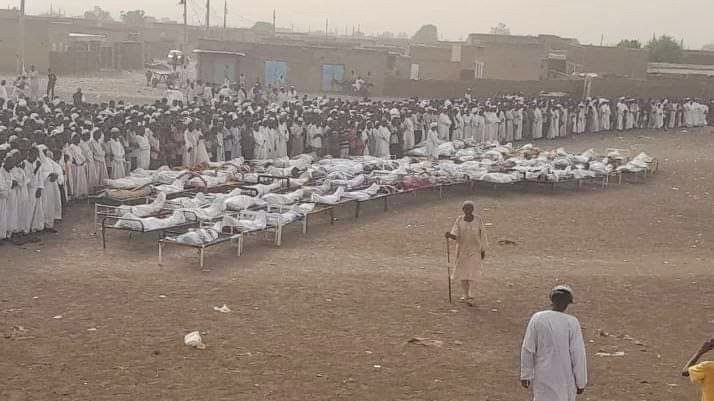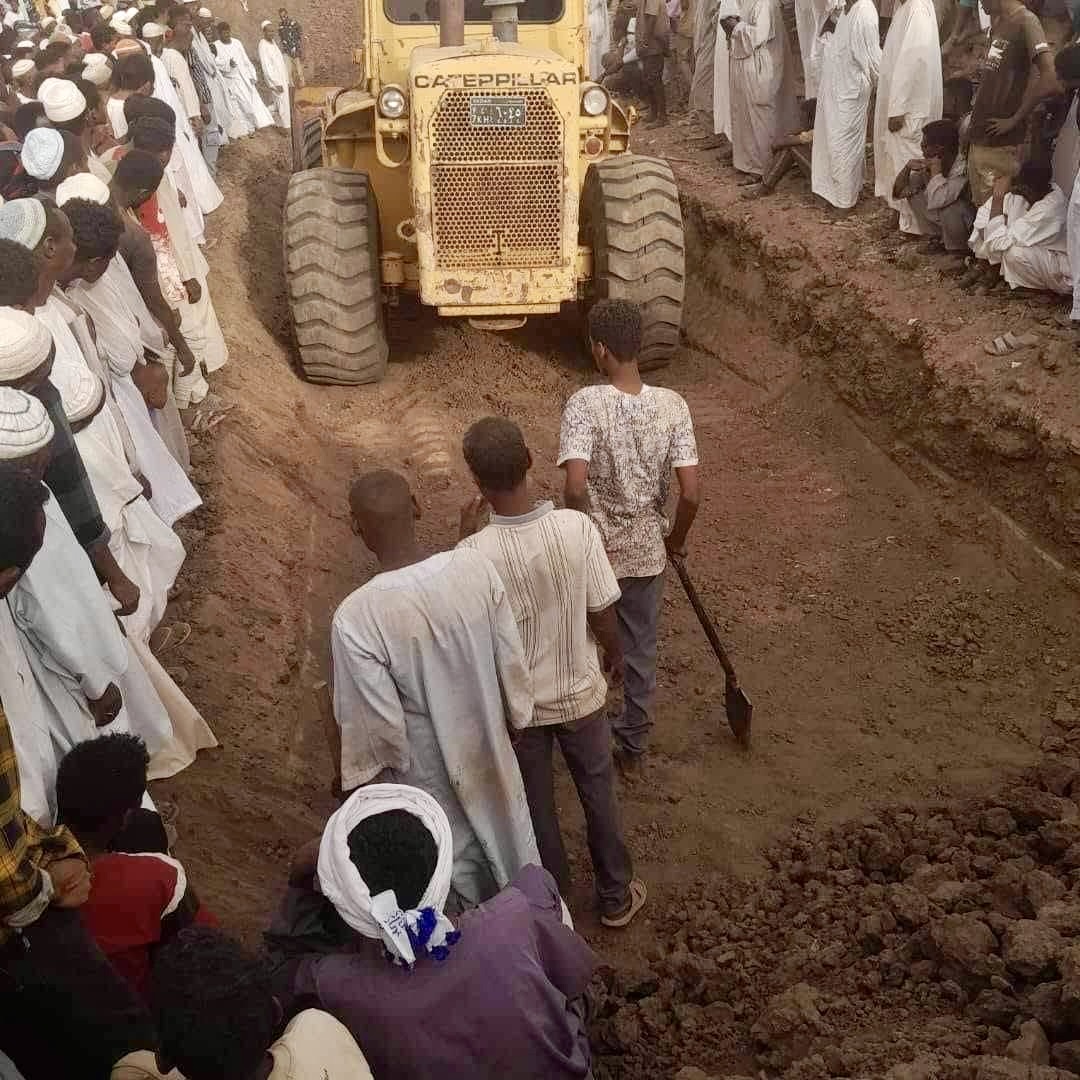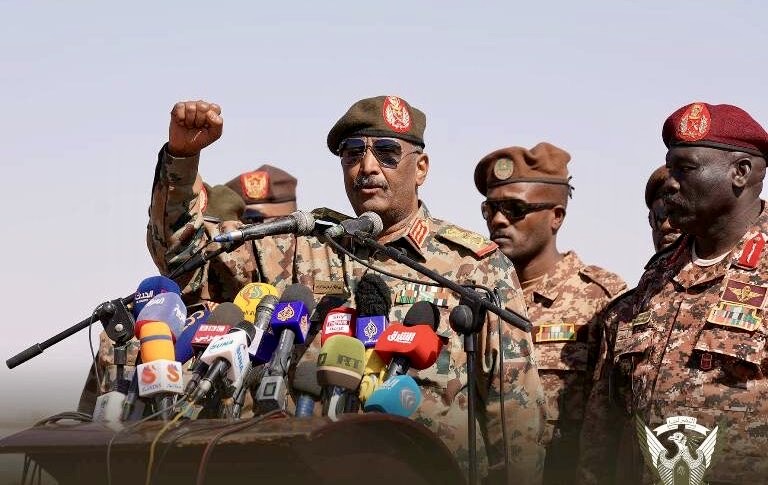The massacre in Wad al-Nura village
6 June 2024
On 5 June, the paramilitary Rapid Support Forces (RSF) launched a fierce attack on Wad al-Nura village in Al-Jazeera State, located 110 km south of Khartoum.
The paramilitary forces launched a raid on the village, randomly bombarded it, and used heavy machine guns and anti-craft guns from multiple directions. As a result of the attack, at least 160 civilians were killed, resulting in a considerable number of injuries, local sources told Ayin.
The Wad Medani Resistance Committees, local volunteer groups that played a central role in the revolution of December 2018, stated that the RSF attacked early Wednesday morning and launched a second attack later in the day to capture the village. All women and children fled to the army-controlled Al-Managil City within Al Jazeera State, the committees said.
“The militia raided the village, looted all the properties, and committed what can only be described as the worst violations since the start of this war, leading to a massive wave of displacement,” Mojahid al-Rafie, a member of the Wad Medani resistance committee, told Ayin. “The village infrastructure was completely destroyed, and the Janjaweed (RSF) themselves documented this massacre using their phones.”
Local sources told Ayin that the RSF attacked the village again on 6 June and established checkpoints within the village.
Musaab Muhammad, a former resident, told Ayin people were displaced from Wad al-Noura en masse and fled to al-Douiem City in White Nile State, located on the western side. “The RSF directed military vehicles equipped with heavy weapons and then bombed homes and shops,” Muhammad added. “The central market, which represented a market for several villages in the area, was completely looted.” The village of Wad al-Noura is now completely devoid of any citizens, according to another local resident, Abu Abdeen. Hundreds of new RSF soldiers had come into Al-Jazeera State from the west last week, Abdeen added, suggesting the attack was planned well in advance.

Targeting civilians
“Even by the tragic standards of Sudan’s conflict, the images emerging from Wad al-Noura are heartbreaking,” said UN Humanitarian Coordinator Clementine Nkweta-Salami in a statement. “I have said it before, and I will say it again: wars have rules that need to be respected, no matter what.” The UN representative has called for thorough investigations into the attack and “for those responsible for crimes to be held accountable.”
Later, on the day of the attack, RSF issued a public statement claiming their forces attacked three army forces in the west, south, and north of the area of Wad al-Nura. These forces, the RSF claimed, were comprised of regular army units along with military intelligence and an Islamic militia known as al-Zubair Ibn al-Awam. “Our forces will not stand idly in the face of any movement or gathering by the enemy,” the RSF spokesperson said. A few days prior to the attack on Wad al-Noura, the al-Zubair ibn al-Awam Islamic militia announced their presence in the village and their resistance to the Rapid Support Forces, according to a video statement on social media.
The spokesman for the Sudan Armed Forces, Nabil Abdullah, however, denies the existence of any military bases around Wad al-Noura and says the village does not represent a military target.
Local residents agree. “There is no military presence in the village; the residents are unarmed civilians,” al-Rafie added. Military expert Amin Ismail emphasised that Wad al-Nura is a small agricultural village devoid of government offices or military bases and dismissed the RSF’s claims of targeting a genuine military target. “If there had been any genuine popular resistance (against the RSF), the number of causalities in the village would not have reached these figures.” Instead, Ismail says, it was a direct attack against unarmed civilians that could hardly fight back. “Their intention was to loot the village,” he added.

Mohamed Osman, a senior Sudan researcher at Human Rights Watch affirms that the attacks on villages in Al-Jazeera State, including this latest case, are deliberate targeting of civilian communities. “Even if there were a military presence in nearby areas, this does not justify entering these villages and committing massacres.”
Since taking control of Al-Jazeera State’s capital, Wad Medani, last December, the RSF have targeted multiple villages within the state. Last month, on 21 May, the RSF stormed the al-Takina area, killing 18 civilians. There were multiple, often repeated raids on villages in Al-Jazeera State in February, according to local sources. One of the deadliest took place on 19 February in the Al-Maghariba area, where the RSF killed six civilians. Just a few days prior to the attack on Wad al-Noura, the RSF targeted the villages Umm Douima and Al-Hasahisa, killing three civilians. The army did not intervene despite having a presence roughly four kilometres away, local sources told Ayin.

An apathetic army
In the case of Wad al-Noura and these previous attacks on villages in Al-Jazeera State, the army never intervened. When the RSF invaded the state’s capital on 19 December, the army withdrew.
“Is the war primarily targeting citizens or is this scenario (in Wad al-Noura) orchestrated to displace and uproot the people of Al-Jazeera to control the state resources, especially our agricultural project? Or perhaps it is to humiliate and displace the people of Al-Jazeera,” questions al-Rafie. The former regime under Omar al-Bashir routinely opposed the people of Al-Jazeera State, al-Rafie added, referring to the people as “raised by communists.”
But Amin Ismail believes the reason for the lack of military intervention is due to logistics and capacity. “Sudan is a vast territory, and the size of its armed forces is relatively small compared to the global average ratio of armed forces to population, which typically ranges from 2% to 3% of the population,” Ismail said. “There are 5,000 villages in Al-Jazeera, and it is unrealistic to have army forces in every village for protection, as this would require an entire battalion”.
In the past few months, different Sudanese army generals have said in public statements that they are gathering joint forces with some of the armed groups to regain control over Al-Jazeera State, but nothing has occurred to date. “Currently, there are equipped forces mobilising to retake Al-Jazeera State from various fronts. These forces have been in motion for some time, bypassing several villages. However, this is the nature of warfare; it can extend for days, weeks, or even months until its objectives are achieved,” Ismail said.
What is happening in Al-Jazeera State and elsewhere, Osman said, are widespread violations against Sudan’s citizenry. “It is a war against civilians and underscores the urgently missing discussion on how to protect civilians and how to form a mechanism to exert political pressure on the international community to move forward with it.”



